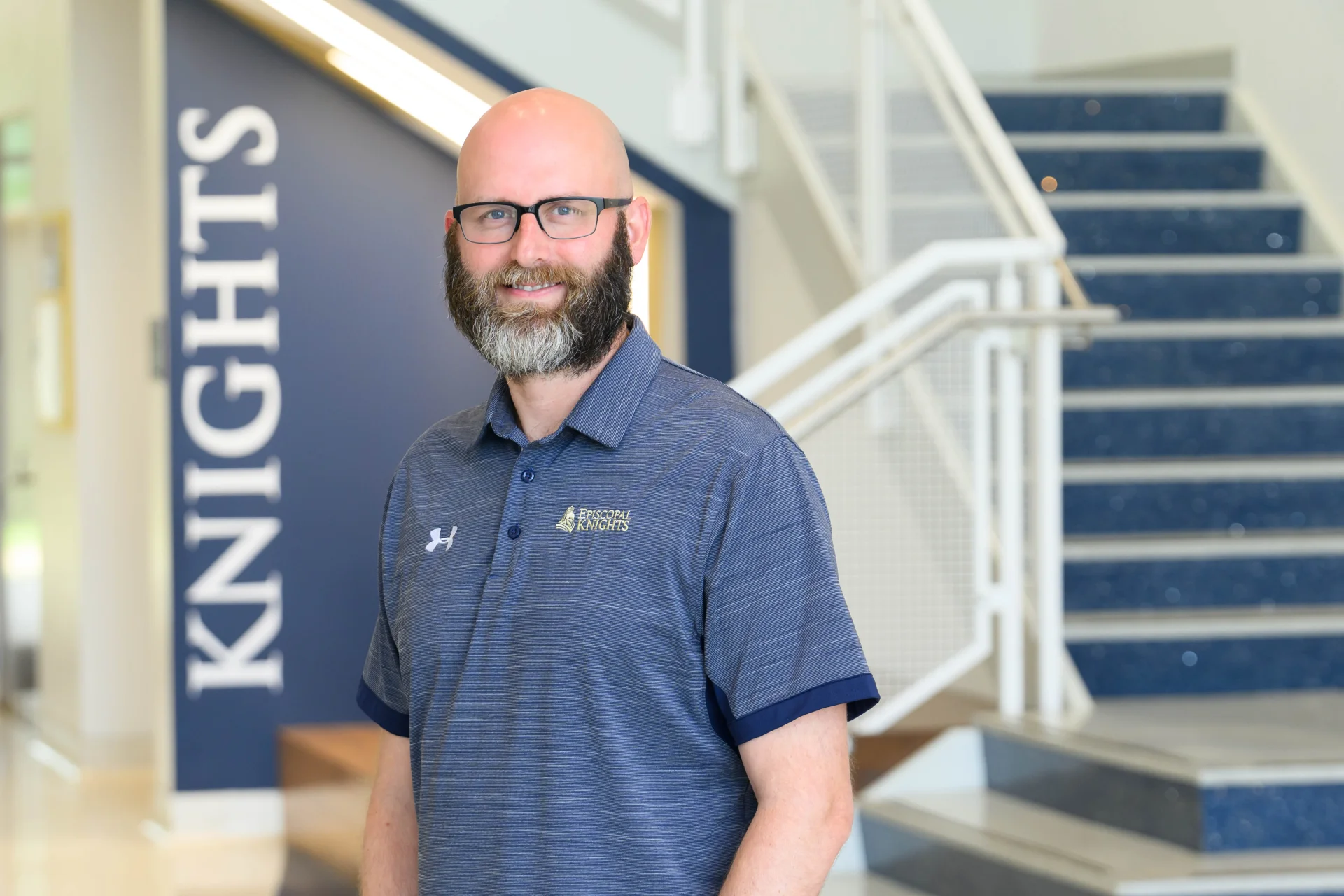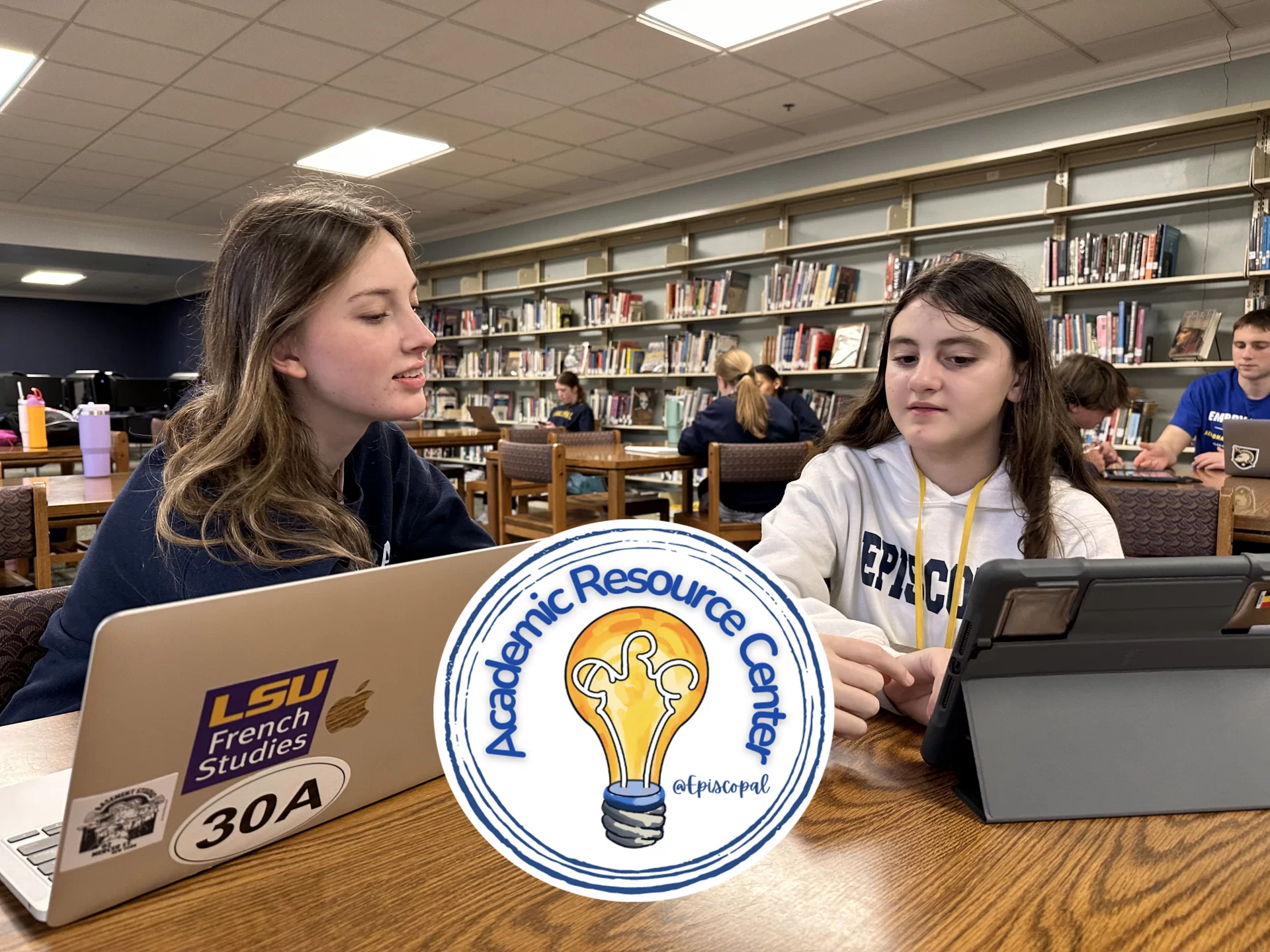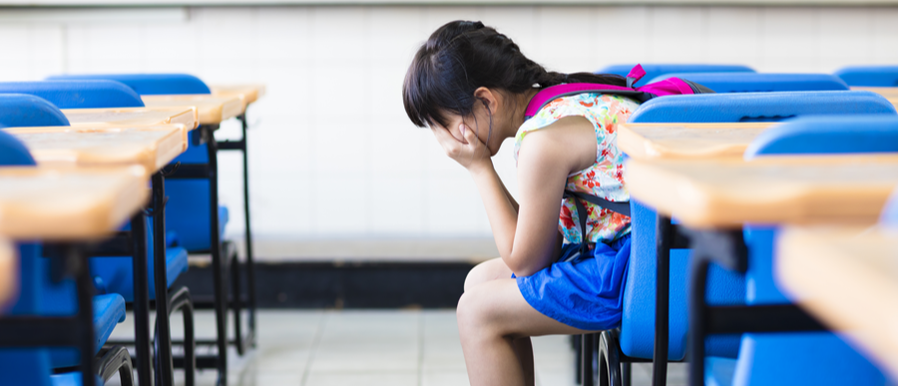- Admission
- Discover Episcopal
- Our Program
- Athletics
- Arts
- Spirituality
- Student Life
- Support Episcopal
- Alumni
- Parent Support
- Knightly News
- Contact Us
- Calendar
- School Store
- Lunch Menu
- Orientation
« Back
Episcopal "Speaks Up" About Bullying
November 8th, 2017

Bullying behaviors have received a lot of publicity in recent years, and for good reason. There have been laws passed against bullying, which can hold parents, children, and school systems accountable for a child’s aggressive acts. This is motivated by findings that repetitive aggressive actions can cause significant emotional distress, depression, trauma symptoms, and suicidal thoughts. Parents have fears that their child may be a victim or aggressor in a bullying situation and often feel ill-equipped to address the outcomes. However, parents and schools can partner to increase knowledge about bullying and lead prevention efforts in their home and school community.
An important first step in prevention is helping students understand what bullying is. Episcopal Middle School students are taught the acronym RIP to define bullying - unwanted, aggressive behavior that is Repetitive, Intentionally harmful, and involves an imbalance of Power, such as size, age, or social status. Bullying behaviors can take several forms, including:
- verbal - name calling, put downs
- physical acts
- relational aggression - gossip, exclusion
- cyber bullying - aggressive behavior involving technology
While conflict between students is common and provides an opportunity for adolescents to learn prosocial communication skills, bullying exceeds typical conflict thresholds and necessitates adult intervention.

How can we tell if a child is the victim of bullying? How do we distinguish typical adolescent “moodiness” and a desire for independence from something more serious? Below are some warning signs that your child may be experiencing bullying:
- unexplained injuries
- somatic symptoms such as headaches/stomachaches, difficulty sleeping or nightmares
- declining grades
- not wanting to attend school
- sudden loss of friends or avoiding social situations
- self-destructive behaviors, such as cutting or other forms of self-injury
While these symptoms alone do not necessarily mean your child is being bullied, they are definitely signals that there could be something going on worth investigating and talking about.
Below are some suggestions for supporting your child as he or she navigates their social world. Remember that while our older children may appear as if they have everything under control and don’t want our support, the truth is that they often are MORE in need as they get older.
- Talk with and LISTEN to your child daily. Make an effort to ask open-ended questions. Take advantage of the time carpooling and driving your child to events to hear them talk with friends, and even have them open up to you.
- Watch for opportunities to point out kindness. Consider interactions you have with others, and model appropriate communication in conflicts.
- Talk with teachers, counselors, or administrators at your child’s school. They are with your child the majority of the day and likely are aware of their social interactions and communication styles.
- Establish household rules about bullying. Your child needs to hear from YOU that it’s not okay to participate in or stand by and watch bullying happen.
- Teach your child to be an upstander. Encourage them to stand up for others when they see unkindness happening rather than standing by and watching it happen, as this often gives the bully the audience they crave and communicates that this behavior is acceptable.
- Talk about their online world. If you are monitoring social media and online communication, talk with your child when you see things that are unkind. Teach them about cyberbullying.
Episcopal has a bullying policy and a formal reporting protocol, which can be found on P. 107, 112-115 in our handbook. We are excited to announce the recent addition of Speak Up!, an anonymous anti-bullying platform that enables students and community members to report bullying and cyberbullying incidents. To report bullying, you may text or call 225-424-2509. We also encourage you to communicate with your child’s Division Head, School Counselor or Mrs. Spencer, our Dean of Students.
Research has shown that “zero tolerance” policies aren’t effective. Rather proactive educational programming helps to create a safe and healthy social environment for all. Episcopal utilizes Social-Emotional Learning approaches across all grade levels in an effort to nurture the “whole” child. Lower School students have lessons from the Second Step Curriculum and daily morning worship lessons on topics such as compassion. Middle School students benefit from classroom and advisory lessons focused on building healthy friendships, learning to identify bullying, and how to be an “upstander”. Sixth grade is a pivotal year during which we engage our new students and help them build community within their class through activities such as our friendship retreat, service learning experiences, and class field trips. In our Upper School, student vestry members speak in chapel on topics such as inclusivity and building community. Advisory lessons about choosing kindness, effective communication, and being an upstander continue in high school at a developmentally appropriate level.
Bullying is not a rite of passage and should not be viewed as a normal part of childhood. At Episcopal, we’d like to partner with parents and students to keep our school a safe and healthy community where all are welcome.
Alicia Kelly
Alicia Kelly has served as a School Counselor at Episcopal since 2001. As the Middle School Counselor, she has a passion for helping pre-adolescents reach their potential, academically, emotionally, and spiritually. Alicia holds a Bachelor’s degree in Psychology, Master’s in Health Sciences- Rehabilitation Counseling, and is a Certified School Counselor and Licensed Professional Counselor.
The Episcopal School of Baton Rouge 2025-2026 application is now available! For more information on the application process, to schedule a tour, or learn more about the private school, contact us at [email protected] or 225-755-2685.
Posted in the categories All, Counselors Corner.
Other articles to consider
 Jun5Episcopal Announces New Athletic Director
Jun5Episcopal Announces New Athletic DirectorPlease join us in welcoming Brent Broussard to the Episcopal community.
See Details Jun2Episcopal Welcomes Dan Binder as the Next Upper School Division Head
Jun2Episcopal Welcomes Dan Binder as the Next Upper School Division HeadPlease join us in welcoming Dan Binder to the Episcopal community.
See Details May22End of the Year Reflection from Dr. Steakley
May22End of the Year Reflection from Dr. SteakleyAn Episcopal education and the community that supports it are remarkable. Dr. Steakley looks back at the moments that made the 2024/2025 school year.
See Details May12Tutoring with a Purpose: Jackson Ezell Reflects on His Time in the Academic Resource Center
May12Tutoring with a Purpose: Jackson Ezell Reflects on His Time in the Academic Resource CenterTime as an ARC Fellow boosts student confidence, encourages friendships and fosters lifelong learning habits. Senior Jackson Ezell reflects on his transformation as a tutor and the transformation of the center from Writing Center to Academic Resource Center.
See Details
Categories
- All
- Admission
- Athletics
- College Bound 2019
- College Bound 2020
- College Bound 2021
- College Bound 2022
- College Bound 2023
- College Bound 2024
- College Bound 2025
- Counselors Corner
- Episcopal Alumni
- Giving
- Head Of School
- Lower School
- Middle School
- Spirituality And Service
- Student Work
- The Teachers' Lounge
- Upper School
- Visual And Performing Arts











